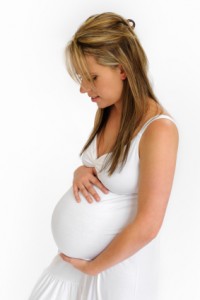
What is chicken pox?
Chicken pox is a very infectious disease caused by a virus called herpes zoster. The medical term for chicken pox is varicella. Majority of adult women have gotten chicken pox during childhood and are immune to it. It is rare to get chicken pox for the second time if you have normal immunity. If you are unsure whether you have had chicken pox in the past you could ask your doctor to do a blood test to check.
What are the symptoms of chicken pox?
- Fever
- Unwell
- Rashes that later develop watery blisters (itchy) -> burst and forms crust
The symptoms may take 10 days to 3 weeks to appear after being exposed to it. Chicken pox during childhood tends to be mild compared to having it as an adult. Complications that could occur from chicken pox includes pneumonia (lung infection) and meningitis (inflammation involving the lining of the spinal cord and brain) Approximately 10% of adult could develop chicken pox pneumonia which could be life threatening. Please see your doctor or go to a hospital if you have the following symptoms:
- Breathing difficulties
- Headache or drowsy
- Rashes that is bleeding
- Vaginal bleeding
- Severe rash
What is shingles? Is it the same as chicken pox?
After you have had chicken pox infection, the virus remains dormant in your body and could be reactivated if your immune is low. This is called as shingles. There will be a patch of itchy blisters on your skin that later crust over. It could be very painful.
What is my risk of getting chicken pox in pregnancy?
This depends on whether you have had chicken pox in the past. If you have had chicken pox in the past, most likely you are immune to it and it will be alright if you are exposed to chicken pox. You do not need to do anything. However, if you are not immune you could catch chicken pox from somebody who currently has it. You could catch it from being face to face with the person for at least 5 minutes, in close contact or being in the same room for at least 15 minutes.
What should I do if I think I’m exposed to chicken pox during pregnancy?
Contact your doctor and find out whether you are immune to chicken pox. You could do a blood test. However, if you are sure and have never had any chicken pox in the past and the exposure is significant, you could be given varicella Immunoglobulin (VZIG).This is a human blood product that contain chicken pox antibodies which could strengthen your immune system. However, it could only make the infection less severe and may not prevent it. This could be given up to 10 days after exposure and prior to symptoms appearing. It would not be helpful after the rash has appeared. In addition, if you are more than 20 weeks pregnant and less than 24 hours after the rash had appeared, you could be given an antiviral medication, Acyclovir which could lessen the severity of the infection. Once you have chicken pox, there is no medication that could be given to prevent transmitting the infection to your baby.
What could happen to my baby if I have chicken pox during pregnancy?
This depends on when the infection occur during pregnancy.
- Up to 28 weeks of pregnancy
There is no evidence that it could cause early miscarriage. There is a risk of 1-2% of damage occurring to the baby’s eyes, legs, arms, bowel and bladder. You will be referred to a fetomaternal specialist for further follow up. Majority of the time, there is no indication for termination of pregnancy.
- 28 to 36 weeks of pregnancy
The virus stays inside the baby’s body but will not cause any symptoms
The baby may become infected and be born with chicken pox
- Around the time of birth and up to 7 days after birth
The baby may be severely affected with chicken pox. She / he will be treated for the infection.
How could I avoid getting chicken pox during pregnancy? Is there a vaccination for chicken pox?
- Avoid contact with children or adult who has chicken pox
- Avoid contact with anyone who has shingles. If the shingles involve a covered part of the body, it tends to be less infectious compared to infection involving the eyes or face.
- Immunize yourself before getting pregnant. There is an effective vaccination for chicken pox. You should not get pregnant for at least 3 months after taking the vaccination.
REFERENCE:
1. Chicken pox information for patients. Royal College of Obstetrician and Gynaecologists. London: RCOG, Nov 2008.
Filed under Infections in Pregnancy | No Comments









